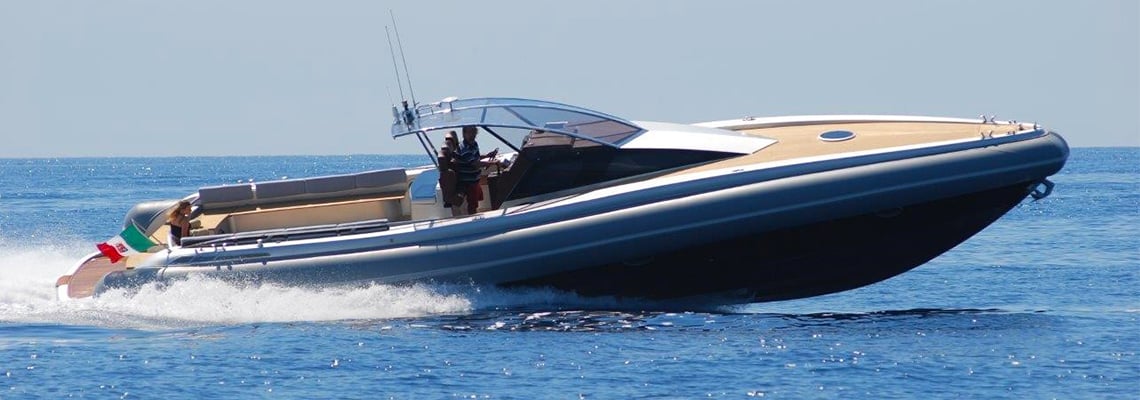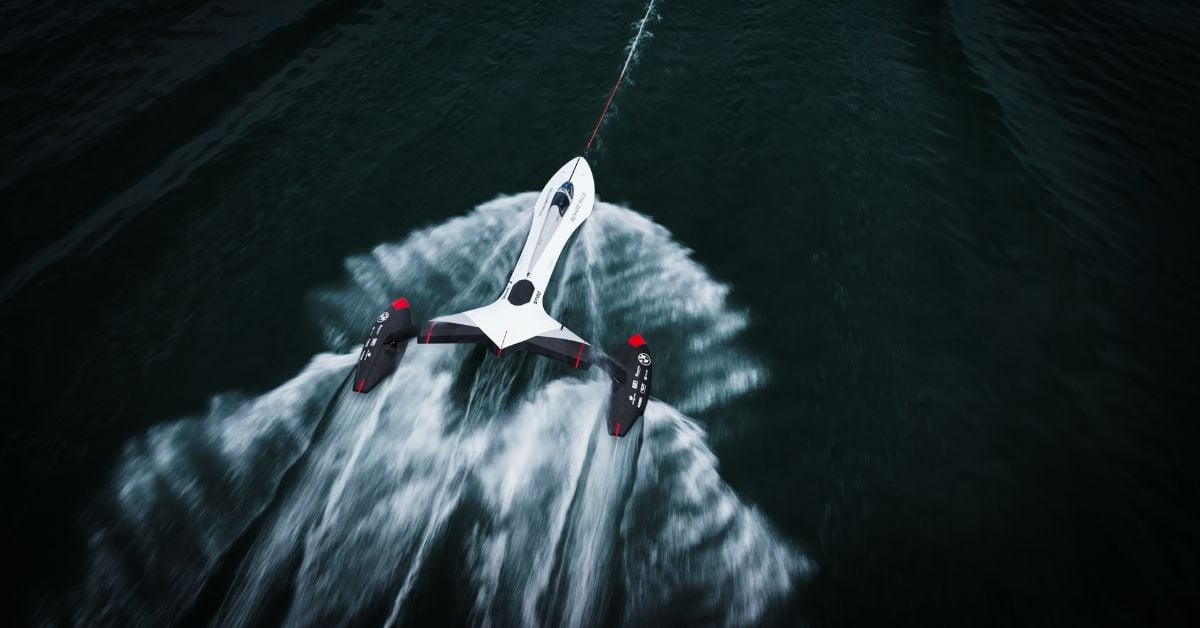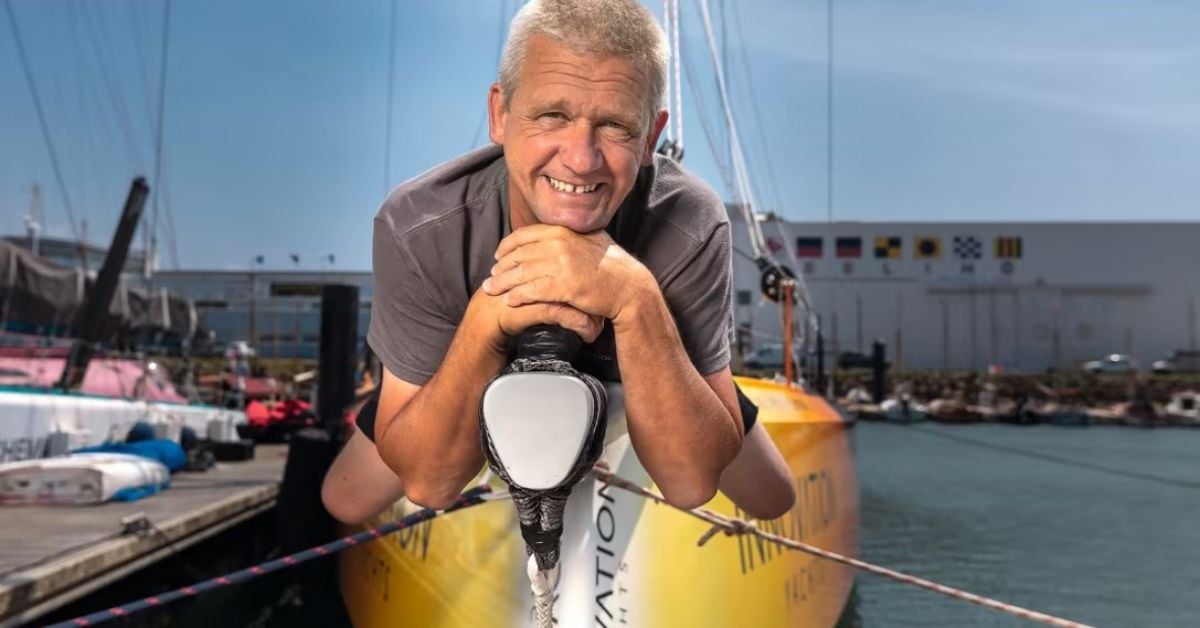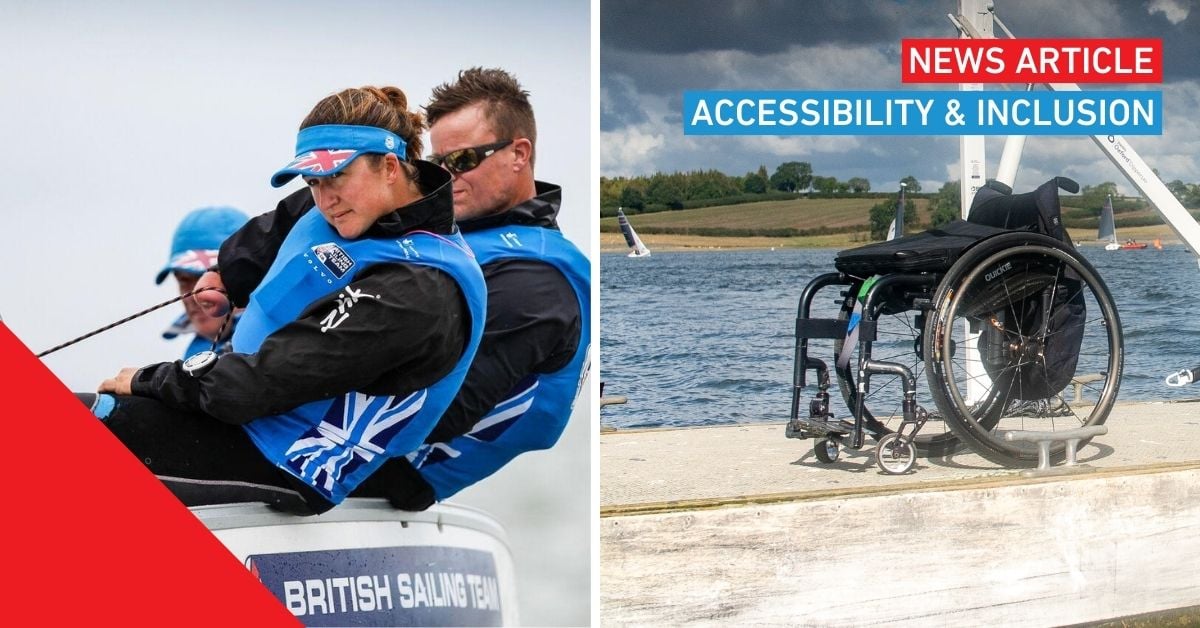What makes the RIB so popular in recreational boating?
At METSTRADE we like to follow the trends in boating, and in particular what the end-users, the boaters themselves, are spending their hard earned money on. After all, we are a Marine Equipment Trade Show, and our exhibitors and visitors do reflect the trends in the market, as do the innovations and developments across the broad range of equipment on view at the RAI every November.
One type of leisure craft that has shown very consistent annual growth in sales numbers, with a lot of creative designs coming to market over the years, is the Rigid Inflatable Boat, better known as a RIB. The interesting thing about RIBS as opposed to most other types of leisure craft, is that they span the entire spectrum of uses and applications including industrial, offshore, rescue operations, expeditions, and even fire and police service support work, as well as being a very popular tender for Superyacht owners and their guests.
The seakeeping, stability, buoyancy, speed and acceleration advantages of the RIB design are extremely well proven and undeniable. Pioneered 35 years ago, by the French inflatable manufacturer Zodiac, originally for military use, the concept is basically a rigid composite or aluminium hull which cuts through the water with minimum resistance, topped with inflatable tubes made from tough seawater and climate resistant materials such as Hypalon. Heavy duty propulsion typically comes from one or two large outboards, or some with inboard engines, and power packages up to 500 or 600 HP are not uncommon. This produces an awesome planing high speed performance, resulting in the ultimate ‘white knuckle ride’ for anyone seeking such thrills on the water, in a virtually unsinkable boat.
So, it’s not for nothing that RIBS are frequently referred to as the SUV, or the 4 X 4 of the sea, and anyone who has ever driven one, will I am sure, fully attest to that description.
RIBS Slice through waves!
In fact, I am one of those attestors myself, having put a 10 metre Ribeye RIB with a couple of 250hp outboards through its paces about 15 years ago. It was in the North Sea, off the East coast of England in late October, when I had to complete my assessment to gain an RYA / MCA Powerboat advanced / commercial license. The plan was for a four hour night passage, facing a force 8 north easterly, with wave heights of over 4 metres waiting for us offshore. The MCA examiner saw the look of trepidation on my face as we got onboard, and he said, “I’m sorry, but for a commercial ticket, we can’t postpone for a bit of wind, so we have to go.” Mmm…Gulp, and a deep breath from me!
Having owned several boats of various shapes and sizes, I’m all too familiar with the pitching motion that occurs when heading into a chop, with the bow of the boat ploughing up the face of the waves, and then diving into the troughs. But what I discovered with the RIB; is that if you’re brave enough to keep the throttle down, the bow doesn’t dive, it just cuts through, and the boat leaps across the wave crests. On that particular night it was too dark with driving rain to see the next wave coming, but you certainly felt it (jarring every bone in your body) when it hit the bow, and you could hear the props spinning in the air as she thrust forward to meet the next one. An unforgettable experience, and a clear reminder, that a RIB will get its crew safely through pretty much any weather. Although, maybe not everyone would choose to be onboard for pure pleasure in such rough conditions.
RIBS are proven in arduous expeditions
A good friend of mine heads up the Ribex World Rivers Expedition Organisation which has successfully completed a fascinating series of big river explorations over the last couple of decades. As expedition leader, and a real fanatic about the virtuosity of the humble RIB, Andy Leemann and his team have been pushing these inflatables to their absolute limits, in some of the most challenging environments on the planet.
Starting out in 2003, Andy’s first river adventure followed in the ‘footsteps’ of the German scientist / explorer Humboldt, who 200 years earlier, had discovered the connection between the two big rivers of the South American continent, the Amazon and the Orinoco.
With eight men in the team, and equipped with 7.5 and 8.5 metre RIBS from the AB brand, they travelled 3000 km through three countries. From the Venezuelan Puerto Ayacucho heading upriver on the Orinoco, then forking off into the river Casiquiare, and into Black River which finally flows into the Amazon.
Since then, the Ribex team and their trusty RIBS have conquered no less than ten more major river expeditions, with a mission to study the local environment, engage with the indigenous people, monitor signs of climate change, and generally be a positive influence with their endeavours.
In 2008 they followed the ill fated 1858 expedition of Dr. David Livingstone on the Zambezi River, through six African countries over a distance of 2500km. They even used their RIBS to deliver lifesaving malaria prevention and treatment (bed nets, medicines etc) to remote villages along the waters edge. And via a TV documentary, they highlighted the efforts of the modern-day explorers who are working to rid the world of the deadly malaria plague.
During the highly ambitious Mekong River expedition through six countries of South East Asia in 2005, they were faced with unexpected dry river beds due to the effects of climate change, and managed to carry the RIBS with all their equipment for several kilometres, until they found water flowing again.
There is a lot more information covering details of all the RIBEX expeditions on their website at: www.ribexpedition.net
RIBS can be super fast, and luxurious too
About 10 years ago, Andy invited me for a sea trial of an Italian built RIB that he had been involved with at the design stage. The Albatro 50 is a streamlined elegant looking 15 metre boat, with a spacious luxuriously fitted out cabin, and plenty of outdoor space for sun lovers. She boasts a decent size galley, head, flat screen TV, air conditioning, generator, etc etc; in fact everything needed for a comfortable few days of cruising, with the added advantage of access to shallow waters. This made her the perfect Superyacht tender, or high performance weekend cruiser.
Powered by twin 341hp Yanmar inboard diesels, this RIB had a serious turn of speed, in addition to a top-line interior specification. On a calm sunny day, Andy invited me take the helm, and we whizzed across the Bay of Palma at 50 knots. An exhilarating experience, and a very different feeling to pounding thorough 4 metre waves in the North Sea a few years earlier!
RIBS come in multiple brands and models
Apart from the few RIB brands I have mentioned so far, there is an ever increasing choice for the consumer, in what seems to be a continually growing market for inflatables. The sector is predicted to reach $2.3 billion in sales by 2024, with a compound annual growth rate of 3.6% from 2019 to 2024.
The choice of brands offering all types of RIBS include the following: Zar Formenti, Technohull, Ribcraft, Airship, BRIG, Williams Tender, Sealegs, Argos Nautic, Tornado, Genesis, Northstar, Agilis, Skipper, SEAir, Sealver, Olympic, Larsen, Liya, Rupert…plus quite a few more!
So, I can’t promise that this list includes every single brand of RIB that is available, but I’m sure that many of the manufacturers will be at the next METSTRADE show, checking out the latest in marine equipment developments to include in their future products.
Share your stories on leisure marine industry with us
Do you have an innovation, research results or an other interesting topic you would like to share with the leisure marine equipment industry? The METSTRADE website and social media channels are a great platform to showcase your stories! Let us know via metstrade@rai.nl
Are you a METSTRADE exhibitor?
Make sure you add your latest press releases to your Company Profile in the Exhibitor Portal for free exposure.







